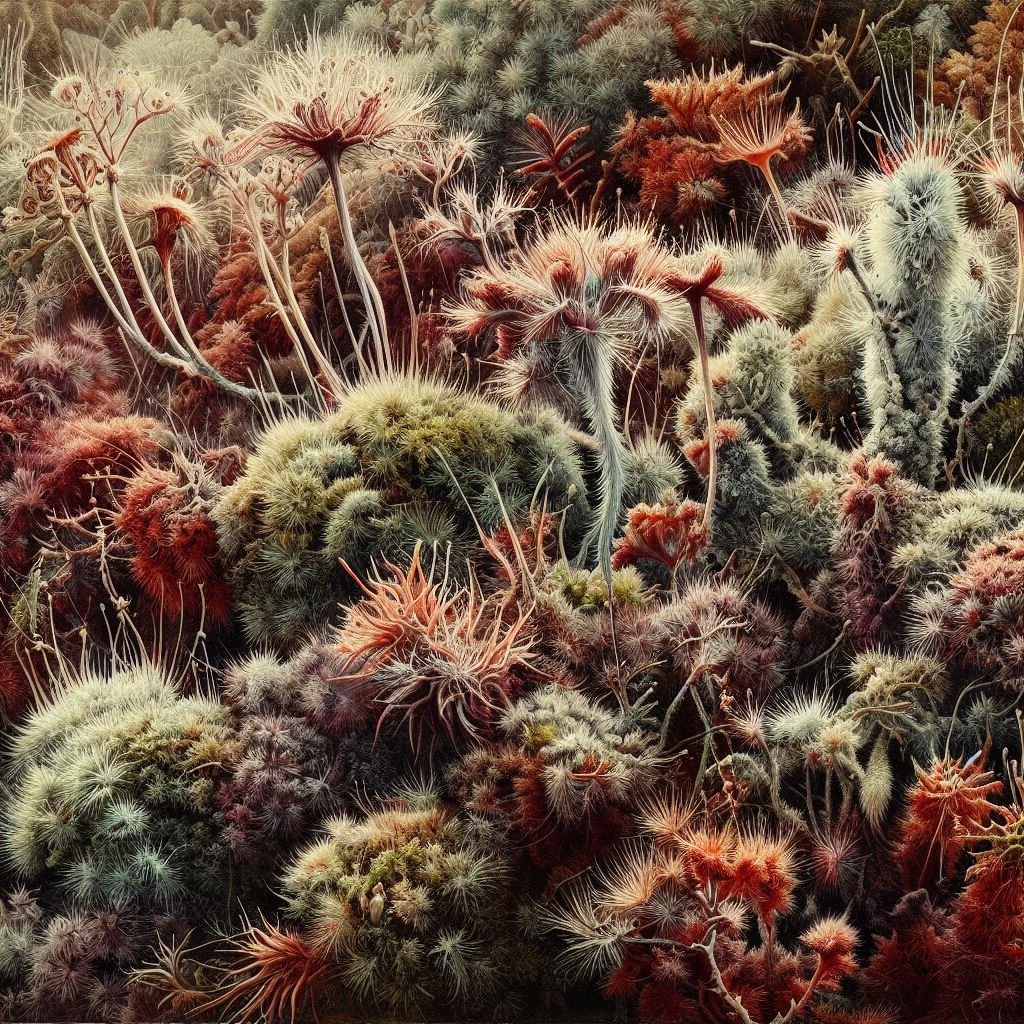Conspiring with life
I remember walking in a beautiful, mystical little, mossy piece of forest pondering this thought. Yes, seeing ourselves as separate from nature enabled us to exploit it. And also, this illusion might now be the biggest hurdle to change.
Our disconnection (from our own human nature, each other and all of life) can be easily traced back to the Enlightenment.
Sir Francis Bacon (1561 – 1626), 'the father of the modern scientific method' said:
“Nature being known it may be master’d, managed and used in the services of human life. The object of knowledge is the control of nature. Nature in itself has no purpose”.
And also, we can follow this trace further back. New agricultural communities started farming experiments 10,000 to 15,000 years ago, for example in Mesopotamia (southwest Asia).
Philipp Blom shows that Mesopotamians already exchanged myths about humans "subjugating nature" (or: using nature as an economic resource):
The powerful king Gilgamesj stars in the oldest written literature, supposedly killing forest ghosts to be able to chop trees for a temple.
To put this in perspective: modern Homo sapiens evolved around 300,000 years ago. Important to not forget that 99% of our time on this planet we did live in tune with nature.
But it did happen -in this relatively short time frame we learned to, step by step (via witch hunt, colonialism, slave trade, the discovery of fossil fuels and industrialisation) distance ourselves from our own (wild, human) nature, other humans (believing to be independent, and -with horrifying consequences -superior) and ultimately from all life on earth.
(Laura Storm and Giles Hutchins dissect this process elegantly in their book Regenerative Leadership).
And now we (not all of us, of course, let's not forget that many people around the world -against all odds, violence and oppression- never lost this 'right relation' with the natural world) are facing these immensely complex problems (of life on earth destroying that very life) from this inflated, sense of self.
As rational, super-humans to whom the laws of nature do not apply (sure, we still die, but we are working on that as well). From this viewpoint, it is easy to overestimate our own potential.
We look at all this complexity, and we think we should be able to fix it: if we think hard enough we can come up with a perfect solution, by ourselves, ideally tomorrow. And of course, we can't.
At the same time, this estrangement leaves us underestimating our potential for change. Because if we truly realise we are part of a bigger whole, things look quite different. If everything is connected, literally every, even the smallest act (thought, word) will have some sort of ripple effect.
In January this year I joined the Regenerative Leadership Journey in which we talk a lot about this separation, and what repair can look and feel like.
When we discussed the Logic of Life ('nature's principles') and I read:
“The degree to which a living system is thriving and vibrant depends on the quality of the relationships."
I froze a bit -thinking, oh damn, not that again. As a self-identifying introvert with a healthy dose of social awkwardness, seeing myself as 'not particularly great at' relationships, was I missing the right skills to become a 'regenerator'?
But now, almost a year later, I look at this quite differently. Realising that it is all about grappling with our place in the universe. Our relation with, our connection to the whole.
I have sometimes almost felt this as a physical shift. A repositioning, a subtle change in gravity, much as if I am closer to the ground, feeling more 'of the ground' (yes, this stuff is hard to explain).
This might also be why I loved Natasha Myers's article so much: How to grow liveable worlds: Ten (not-so-easy) steps for life in the Planthroposcene.
Myers writes:
"To say that forests and marine microbes form the “lungs of the earth” is an understatement. They literally breathe us into being... we need to learn not just how to collaborate, but also how to conspire with the plants".
I love that notion: to 'conspire with plants'. And, I imagine we could also practice conspiring with the sun, water, air, soil, rocks, insects, animals, all, literally all life.
To conspire comes from the Latin conspirare: ‘agree, plot’, from con- ‘together with’ + spirare ‘breathe’.
Which might explain why it makes me feel rebellious, almost giddy, alive. Yes, let's breathe with, plot with all of life.
Last week I hiked again in a beautiful, mossy, rainy forest and I felt it again. Let's get closer to the ground, realise more often that we are óf the earth.
So we can start to believe, grasp, feel that we are more insignificant than we think, and more powerful at the same time.




